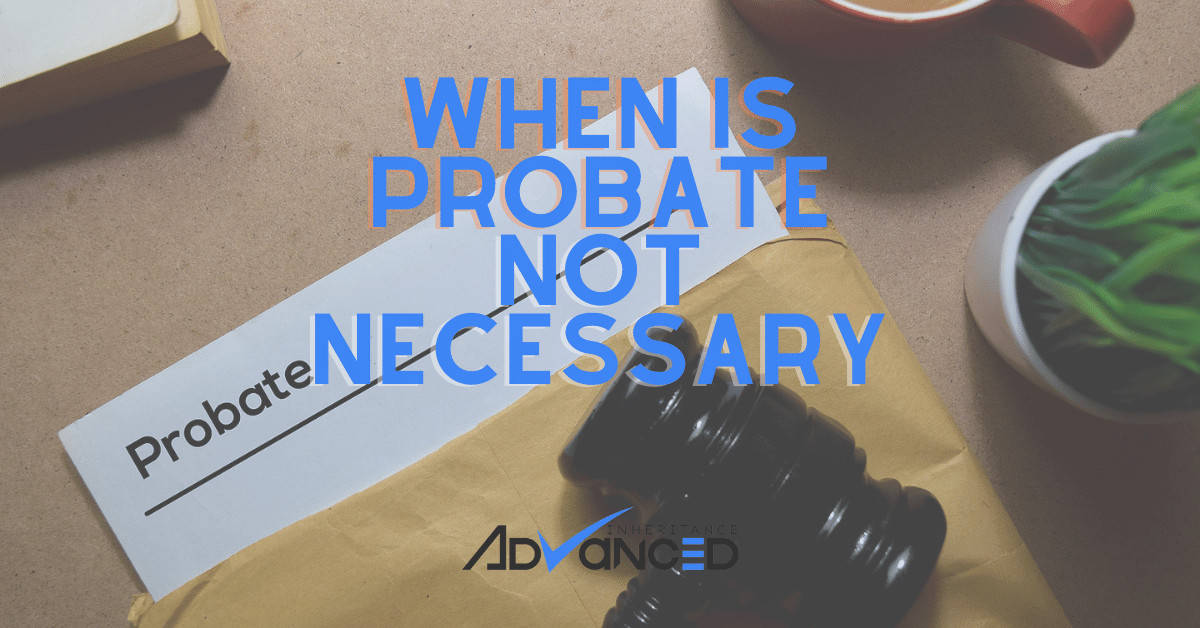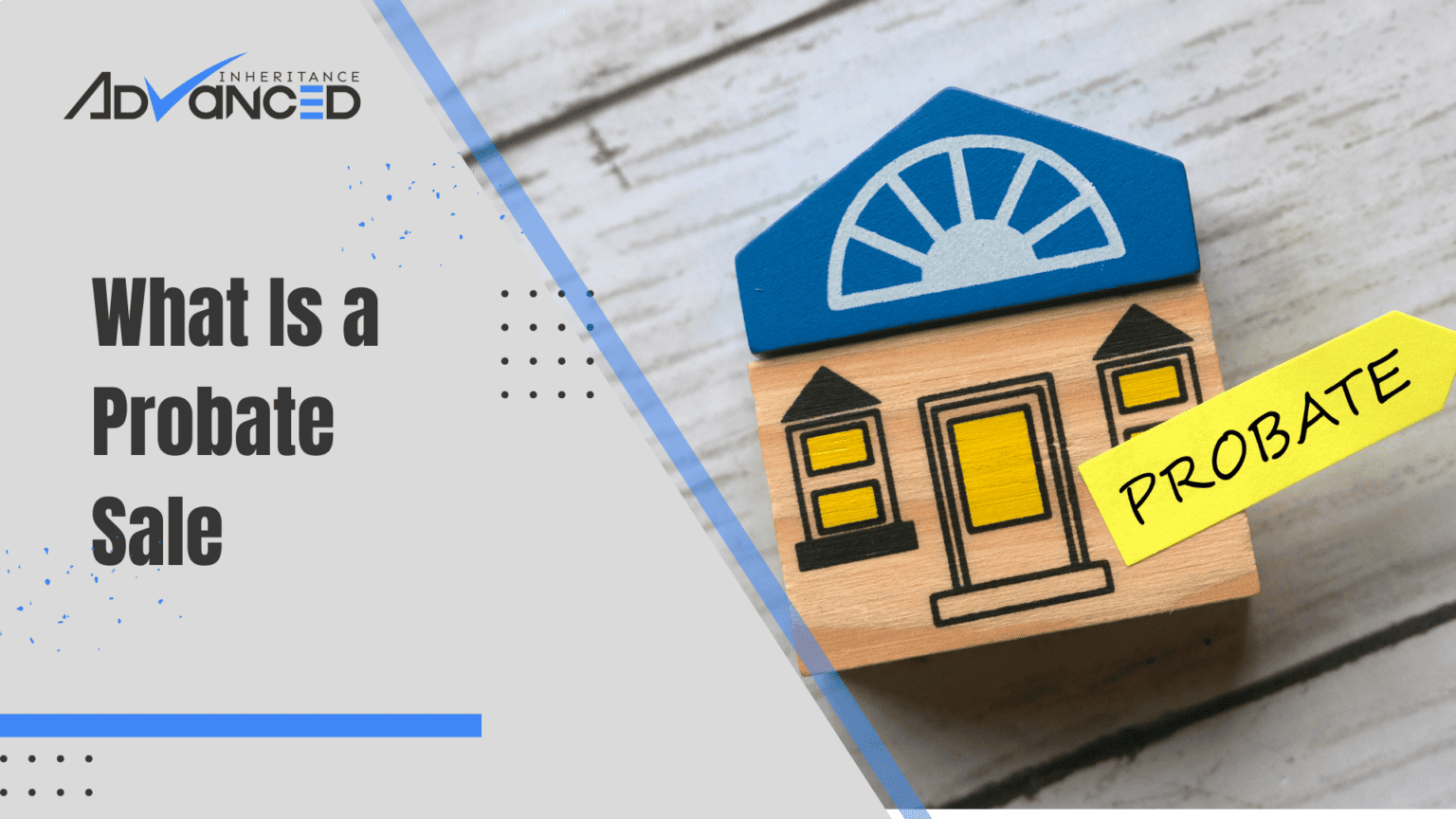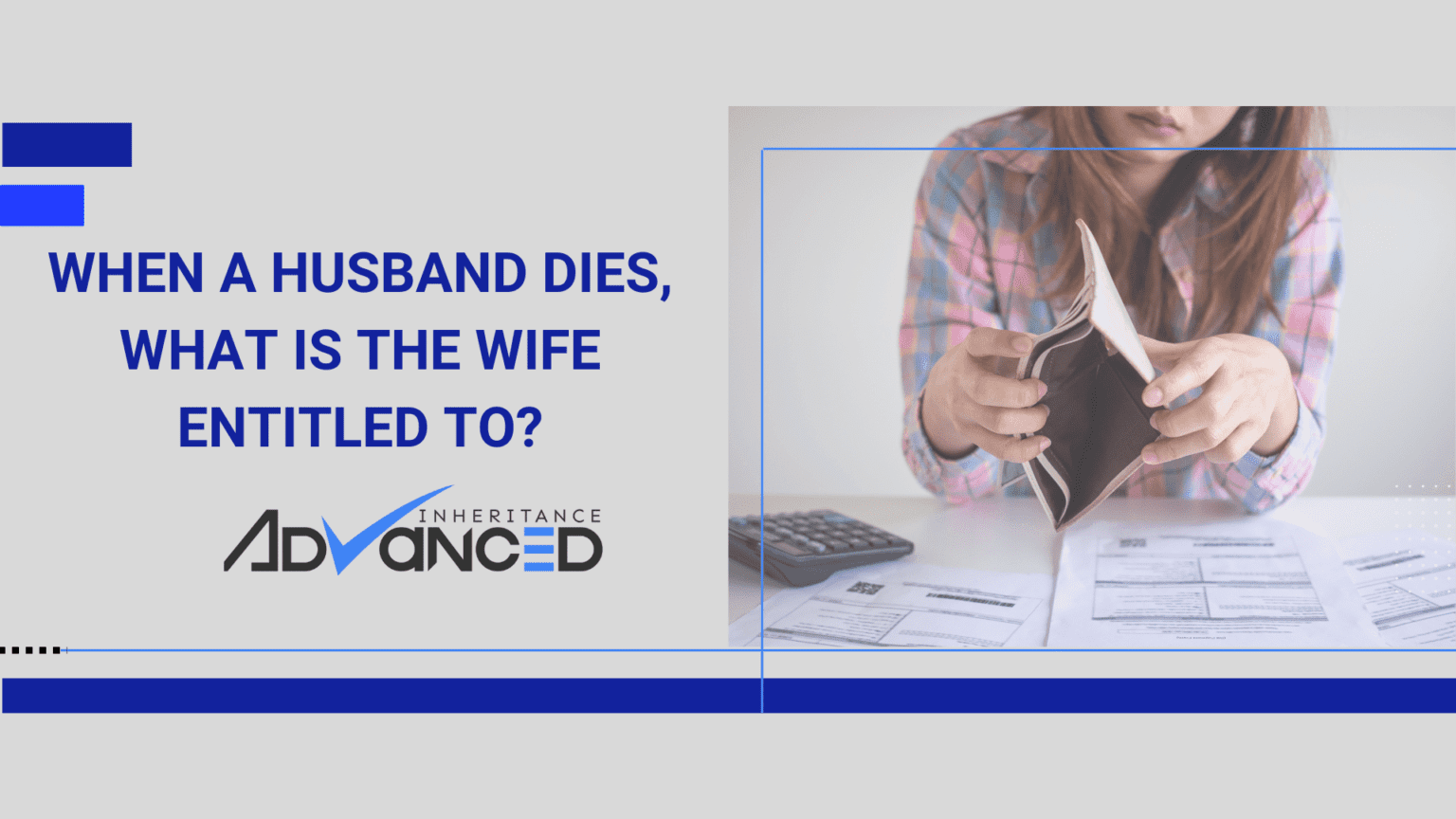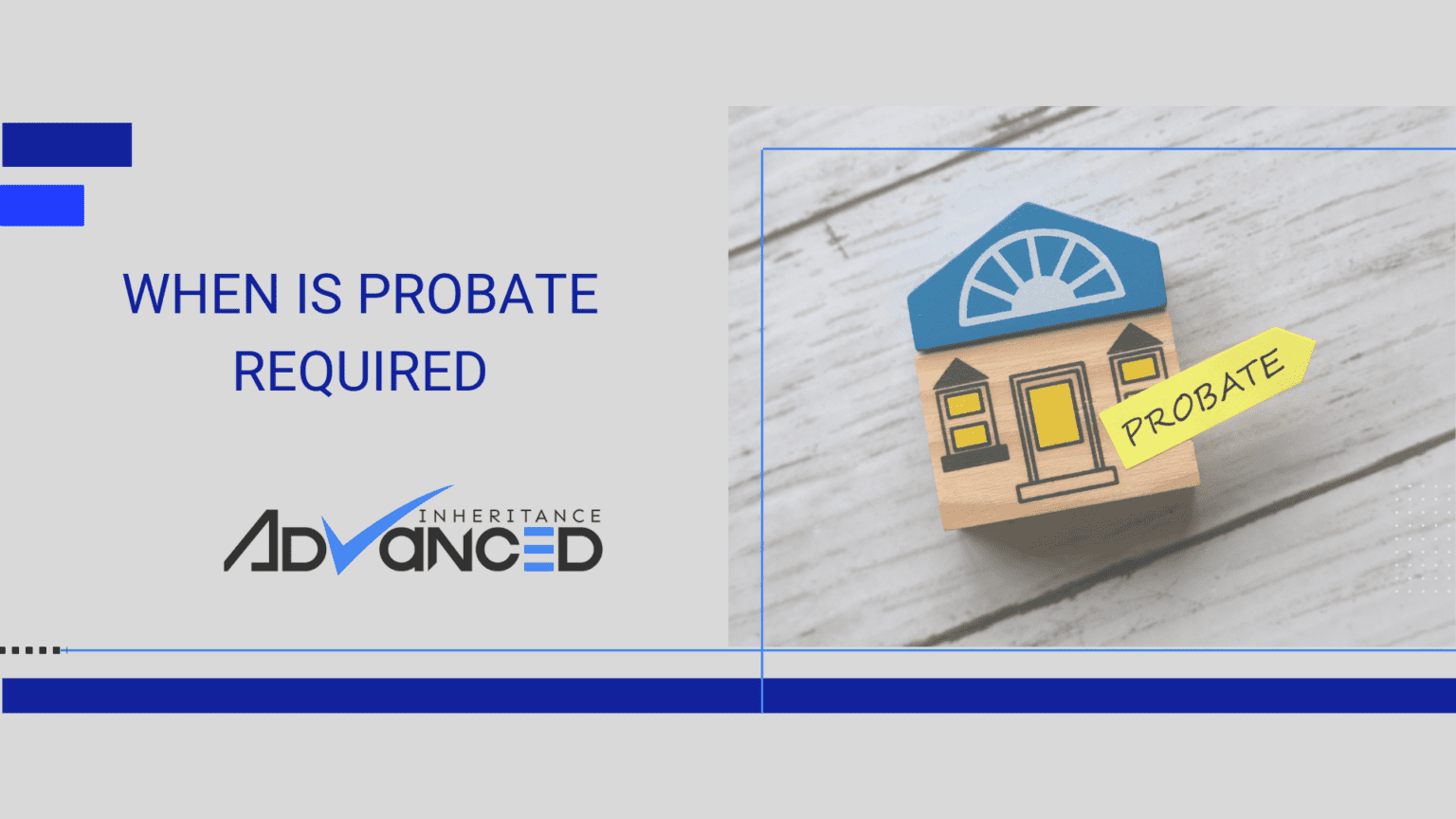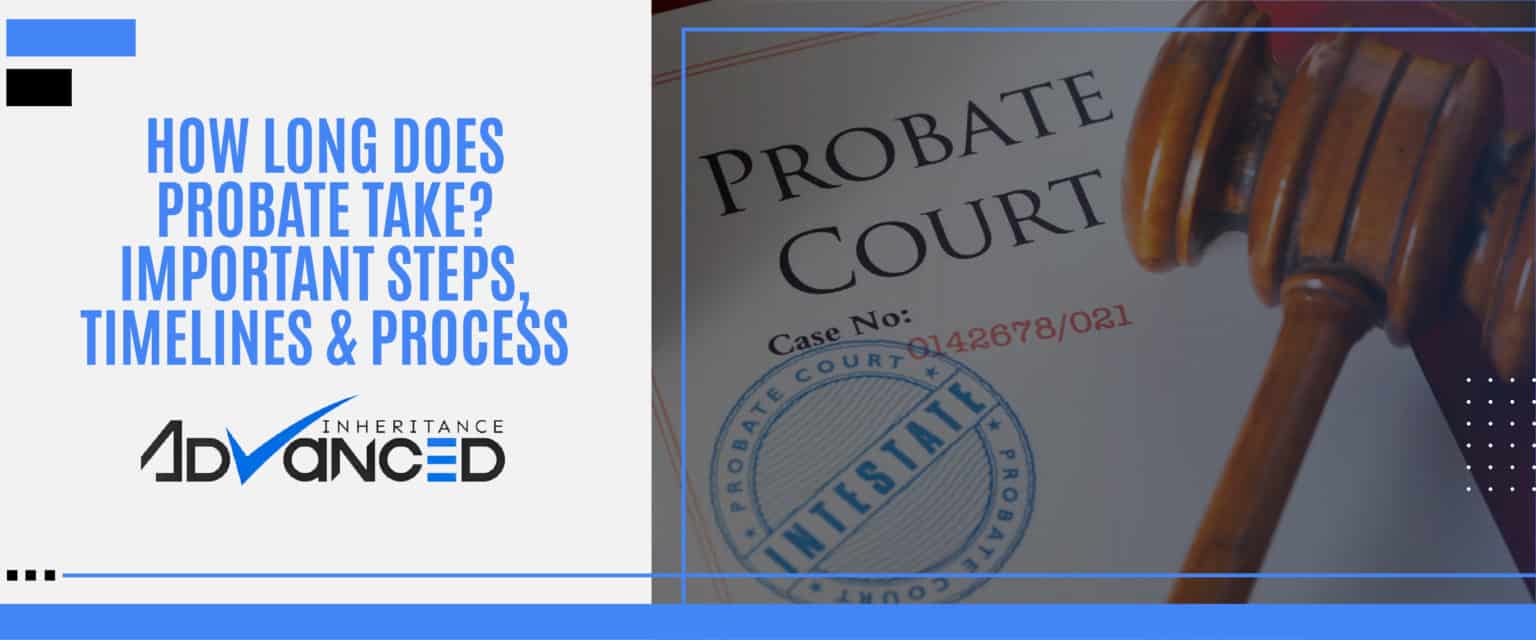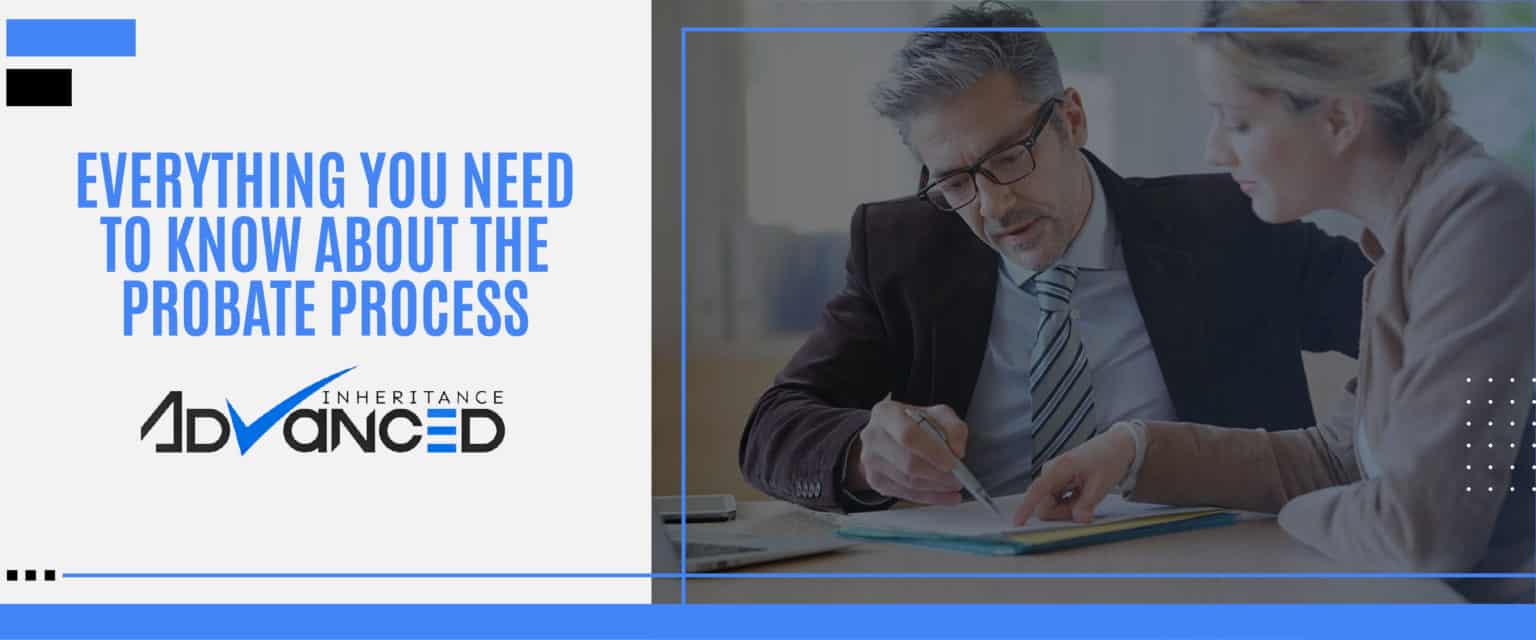The term “probate” refers to the legal process that transfers assets from one person to another. In the case of large estates, it can be fairly complex. Probate may or may not be necessary, depending on whether there’s a will and the assets in question. Some people assume that whenever there’s a will, you can skip probate. Unfortunately, that’s not the case. Let’s take a closer look at when probate is not necessary.
Understanding Probate: What It Is and When It’s Required
Probate is the legal process of administering the estate of a deceased person. It involves the court overseeing the distribution of the deceased person’s assets to their heirs and beneficiaries. Probate is necessary when the deceased person had assets that were solely in their name and did not have a beneficiary designation or joint ownership. These assets include real estate, bank accounts, stocks, and other investments.
When someone dies without a will, their assets are distributed according to the laws of intestacy in their state. In this case, probate is necessary to ensure that the deceased person’s assets are distributed according to the law. Probate is also necessary when there are disputes among the heirs or beneficiaries over the distribution of the assets.
When Is Probate Required?
Probate is required when someone dies and has assets that were solely in their name and did not have a beneficiary designation or joint ownership. These assets include real estate, bank accounts, stocks, and other investments. In some states, probate is also required if the deceased person’s estate is valued above a certain amount, such as $75,000 or $100,000.
If the deceased person had assets that were jointly owned or had a beneficiary designation, probate may not be necessary. For example, if the deceased person owned a house with their spouse and the house was titled as “joint tenants with right of survivorship,” the house would automatically pass to the surviving spouse without going through probate.
Exceptions to Probate: When Is It Not Necessary?
There are several exceptions to probate, and in some cases, it may not be necessary at all. If the deceased person had assets that were jointly owned or had a beneficiary designation, probate may not be necessary. For example, if the deceased person had a life insurance policy with a named beneficiary, the proceeds of the policy would go directly to the beneficiary without going through probate.
In some states, small estates are exempt from probate. For example, in California, estates valued at less than $166,250 are exempt from probate. In these cases, the assets can be distributed to the heirs or beneficiaries without going through the probate process.
Alternatives to Probate: What Are Your Options?
There are several alternatives to probate that can be used to distribute the deceased person’s assets. One option is to create a living trust. A living trust is a legal document that allows the deceased person to transfer their assets to a trust while they are still alive. When the person dies, the assets in the trust are distributed to the beneficiaries without going through probate.
Another option is to use joint ownership or beneficiary designations to transfer assets outside of probate. For example, if the deceased person had a bank account with their child as a joint owner, the account would automatically pass to the child without going through probate.
Probate vs. Non-Probate Assets: What’s the Difference?
Probate assets are assets that are solely in the deceased person’s name and do not have a beneficiary designation or joint ownership. These assets include real estate, bank accounts, stocks, and other investments. Non-probate assets are assets that pass outside of probate, such as those with a beneficiary designation or joint ownership.
How to Avoid Probate: Tips and Strategies
There are several strategies that can be used to avoid probate. One strategy is to create a living trust. A living trust allows the deceased person to transfer their assets to a trust while they are still alive. When the person dies, the assets in the trust are distributed to the beneficiaries without going through probate.
Another strategy is to use joint ownership or beneficiary designations to transfer assets outside of probate. For example, if the deceased person had a bank account with their child as a joint owner, the account would automatically pass to the child without going through probate.
Jointly Owned Property
Joint ownership of property is a common and effective strategy to avoid probate. When property is jointly owned, it typically passes directly to the surviving owner upon the death of the other owner, bypassing the probate process entirely.
There are several types of property that can be jointly owned, including real estate, vehicles, bank accounts, and other financial accounts. For instance, if a house is owned jointly by two individuals and one of them passes away, the house automatically becomes the property of the surviving individual. This transfer of ownership happens without the need for probate.
However, it’s important to note that joint ownership isn’t always the perfect solution. It can lead to potential issues, such as disagreements among owners, and it may have tax implications. Therefore, it’s crucial to consider all aspects and potential outcomes before deciding to jointly own property.
Death Deeds
A death deed, also known as a “transfer on death deed” (TODD), is another tool that can help avoid probate. This type of deed is a document that you prepare and record while you’re alive, but it doesn’t take effect until your death.
In essence, a TODD allows you to name a beneficiary who will receive certain types of real property upon your death, without the need for probate. When you pass away, the property transfers directly to the beneficiary you named in the TODD.
It’s important to note that not all states allow the use of TODDs, and the types of assets that can be transferred using a TODD may vary. Therefore, it’s crucial to consult with a legal professional to understand if a TODD is a viable option for you.
Affidavit for Transfer Without Probate
An affidavit for transfer without probate is another tool that can be used to avoid the probate process. This document allows the transfer of certain types of assets without the need for probate, provided certain conditions are met.
For example, in some states, if the deceased person’s estate is below a certain value and consists mostly of personal property (like a car or household items), an heir may use an affidavit to claim the deceased person’s property. The heir must typically attest that all debts of the deceased person, including funeral and burial costs, have been paid or will be paid.
In some cases, an affidavit can also be used to transfer ownership of a vehicle. The heir must usually show that they are named in the last will and testament and have a right to inherit the vehicle.
Trusts
Trusts are a powerful estate planning tool that can help avoid probate. A trust is a legal arrangement where one person (the trustee) holds property for the benefit of another person (the beneficiary). The property placed in a trust can bypass the probate process, which can save time and money.
There are two main types of trusts: irrevocable trusts and revocable living trusts. An irrevocable trust cannot be changed or terminated without the permission of the beneficiary. The property transferred into an irrevocable trust is no longer considered part of your estate, which can have tax benefits and protect the assets from creditors.
On the other hand, a revocable living trust can be changed or terminated by the person who created it (the grantor) during their lifetime. Upon the grantor’s death, the trust becomes irrevocable. The assets in the trust are then distributed to the beneficiaries according to the terms of the trust, bypassing probate.
Both types of trusts have their advantages and disadvantages, and the best choice depends on your individual circumstances. It’s recommended to consult with a legal professional when setting up a trust.
Beneficiary Designations
Beneficiary designations are a simple yet effective way to avoid probate for certain types of assets. By naming a beneficiary for assets such as life insurance policies, retirement accounts, and certain types of bank accounts, you can ensure these assets are transferred directly to the beneficiary upon your death, bypassing the probate process.
This strategy allows you to maintain ownership and control of the assets during your lifetime, while also ensuring a smooth transfer of these assets upon your death. The process of making a beneficiary designation is typically straightforward and can often be done without the need for a probate attorney.
Common assets that can be transferred using beneficiary designations include:
- Life insurance policies
- Retirement plans (401k plans, individual retirement accounts (IRAs), and 403(b) plans)
- Annuities
- Health savings accounts
- Stock options
It’s important to review your beneficiary designations regularly and update them as needed, especially after major life events like marriage, divorce, or the birth of a child.
Financial Accounts
Jointly owned financial accounts are another way to avoid probate. When a financial account is jointly owned, the funds in the account typically pass directly to the surviving owner upon the death of the other owner, without the need for probate.
Joint bank accounts can be particularly convenient in several situations, such as for couples who wish to manage their finances together, for family members who are assisting an incapacitated person with their financial affairs, or for parents who are teaching their children about financial management.
However, while joint ownership can be an effective way to avoid probate, it’s important to be aware of potential tax implications. Assets that pass outside of the probate process may be subject to certain taxes, and the tax implications can vary depending on the value of the estate and the specific laws in your state.
As always, it’s recommended to seek legal advice when planning your estate to ensure you’re making the best decisions for your specific situation.
Legal Advice
While the strategies mentioned above can be effective in avoiding probate, they may not be suitable for everyone. Each person’s situation is unique, and what works best for one person may not work as well for another. Therefore, it’s always recommended to seek legal advice when planning your estate.
Consulting with a probate lawyer can provide valuable insights into your specific situation. They can help you understand the potential advantages and disadvantages of different strategies, and they can guide you in making decisions that best align with your goals and circumstances.
A probate lawyer can explain how you can leverage estate planning tools to transfer assets outside of a probate court proceeding. They can also discuss any issues relating to your last will and testament or other estate planning documents you may already have.
Additionally, a probate lawyer can assist with the probate process if it becomes necessary. They can help navigate the complexities of the process, ensuring all legal requirements are met and helping to resolve any disputes that may arise.
In conclusion, while there are many strategies to avoid probate, it’s important to remember that the best approach depends on your individual circumstances. By seeking legal advice, you can ensure that you’re making informed decisions that will best serve your and your loved ones’ interests.
The Probate Process: What to Expect
The probate process can be lengthy and expensive, and it typically takes several months to complete. The first step in the probate process is to file a petition with the court to start the probate proceedings. The court will then appoint an executor or personal representative to administer the estate.
The executor or personal representative is responsible for gathering the deceased person’s assets, paying any debts or taxes owed by the estate, and distributing the remaining assets to the heirs or beneficiaries. The court oversees the entire process and ensures that the assets are distributed according to the law.
Hiring a Probate Attorney: When Is It Necessary?
Hiring a probate attorney is not always necessary, but it can be helpful in certain situations. If the deceased person’s estate is complex or there are disputes among the heirs or beneficiaries, hiring a probate attorney can help to ensure that the probate process runs smoothly.
A probate attorney can also help to ensure that the deceased person’s wishes are carried out and that their assets are distributed fairly. They can provide guidance on the probate process and help the executor or personal representative to meet their legal obligations.
Common Probate Mistakes to Avoid
There are several common probate mistakes that can be avoided with proper planning. One mistake is failing to create a will or trust. Without a will or trust, the deceased person’s assets will be distributed according to the laws of intestacy in their state.
Another mistake is failing to update beneficiary designations or joint ownership arrangements. If the deceased person’s beneficiary designations or joint ownership arrangements are outdated, their assets may not pass to the intended beneficiaries.
The Only Assets are Non-Probate Assets
If your estate only consists of non-probate assets, you’ll be able to skip a formal probate process. Non-probate assets are those that bypass the probate process and go directly to your named beneficiaries. These include:
- Assets held in joint tenancy – real estate you share with others like your spouse or siblings. These automatically transfer to the surviving tenant upon your death.
- A life insurance policy that lists someone other than the deceased or their estate as the beneficiary. Note: If the deceased or their estate is listed as the beneficiaries on any life insurance policies, it must go through the probate process.
- Property held in a trust
- Retirement accounts and investment accounts with a named beneficiary
- Any accounts with a payable on death (POD) or transfer on death (TOD) clauses with beneficiaries
The Estate is Too Small to Require Probate
Each state has a threshold for what qualifies as a small estate. In California, for instance, if your estate is valued at $150,000, it’s considered small. In Nebraska? It’s $50,000 or less. Check with an attorney to find out about that threshold in your state.
Small estates are generally eligible for a simplified probate process that doesn’t use a probate lawyer. Very large estates generally cannot avoid the full probate process.
Nobody Disputes the Will
To avoid probate court, no heirs or beneficiaries can dispute the estate. If at least one person contests the validity of the will or doesn’t agree with its terms, there’s no way to avoid the formal probate process.
The probate court will have to hold a hearing to determine if there’s a valid dispute. This delays everything until a decision is reached.
That said, there are limited reasons why someone can file a dispute. It’s not possible to file just because you don’t like what a deceased person included in their will. Creditors have the right to file against the estate If they’ve not been paid, but the executor has the right to dispute the debt.
If there aren’t any heirs, the court decides what happens, which means the estate has to go through probate before it’s distributed.
Understanding Probate When Required and Exploring Alternatives
Probate is a legal process that is sometimes necessary after someone dies. While probate can be a lengthy and expensive process, it is often necessary to ensure that the deceased person’s wishes are carried out and their assets are distributed fairly. However, there are several alternatives to probate that can be used to distribute the deceased person’s assets.
If you are facing the probate process, it’s important to understand your options and work with a qualified professional to ensure that the process runs smoothly. By taking the time to plan ahead and explore your options, you can ensure that your loved ones are taken care of after you’re gone.
Consider an inheritance advance to avoid the lengthy wait for probate to complete. Our service allows you to receive your inheritance in as little as 24 hours, giving you quick access to the funds you need. Contact Inheritance Advance today to learn more.
FAQs About Avoiding the Probate Process
If I want to avoid probate, what steps do I need to take?
Carefully plan things now, to make things easier in the future. First, check with your state’s estate limits – because what qualifies as “small” may actually be much larger than you’d expect.
Make your accounts payable on death. Bank accounts, securities, etc. can automatically transfer to your chosen beneficiary upon your death without probate.
From there, consider creating a living revocable trust. It’s a trust that you can charge during your lifetime – and will allow your family members and friends to inherit property without needing to go through probate. For the best result, seek legal advice from an attorney in your state.
How do state laws influence what happens if I die without a will?
If you die without a will in place, that’s known as dying intestate. Each state has its own laws, so it’s important to speak to an estate planning attorney.
The court will appoint someone to handle your estate for you. Most states will go by community property laws and the line of succession. Typically, this means your estate goes to your surviving spouse and adult children. Should you not have a spouse or adult children, it may go to your parents, then siblings, and other family members.
If I give away assets while I’m alive, does that help?
If you can reduce the size of your estate while you’re alive, it’s possible that you may be able to get it to the exempt from probate, or at least a simplified probate level. Don’t wait until your death to pass assets to your family and friends. It will reduce the amount of your estate that goes through probate, and it may also reduce or eliminate federal and state estate taxes.
Can you skip probate altogether?
Some people don’t want to go through probate. There’s nothing that requires a will or property to probate, but if the deceased owned property that’s not be specifically arranged to avoid probate, there’s no way the beneficiaries can legally own it without probate. There may be exceptions to this, depending on the state you live in. In Florida, for instance, a family can own property in the deceased’s name as long as they continue to pay taxes on it and do not sell it.
Stuck Waiting on an Inheritance to Go Through Probate Court?
If you’re dealing with a probate estate and you need access to funds now, you may qualify for an inheritance cash advance. It’s a quick and easy way to get money in your bank account in as little as 24 hours. Contact us for your free evaluation.

